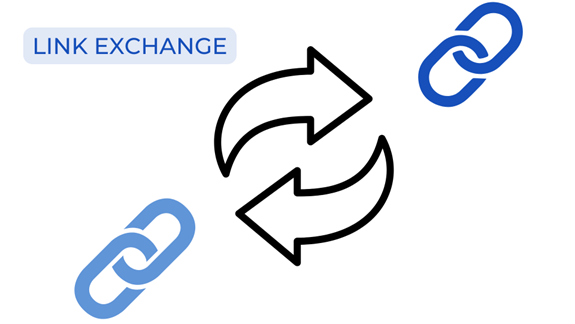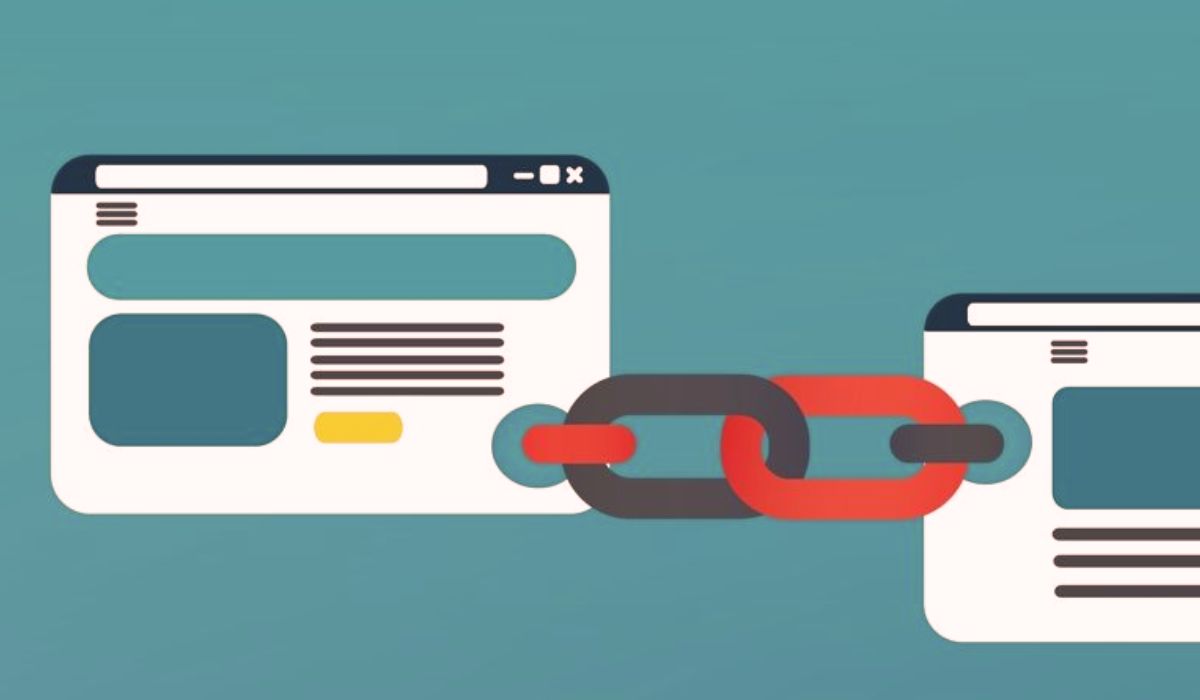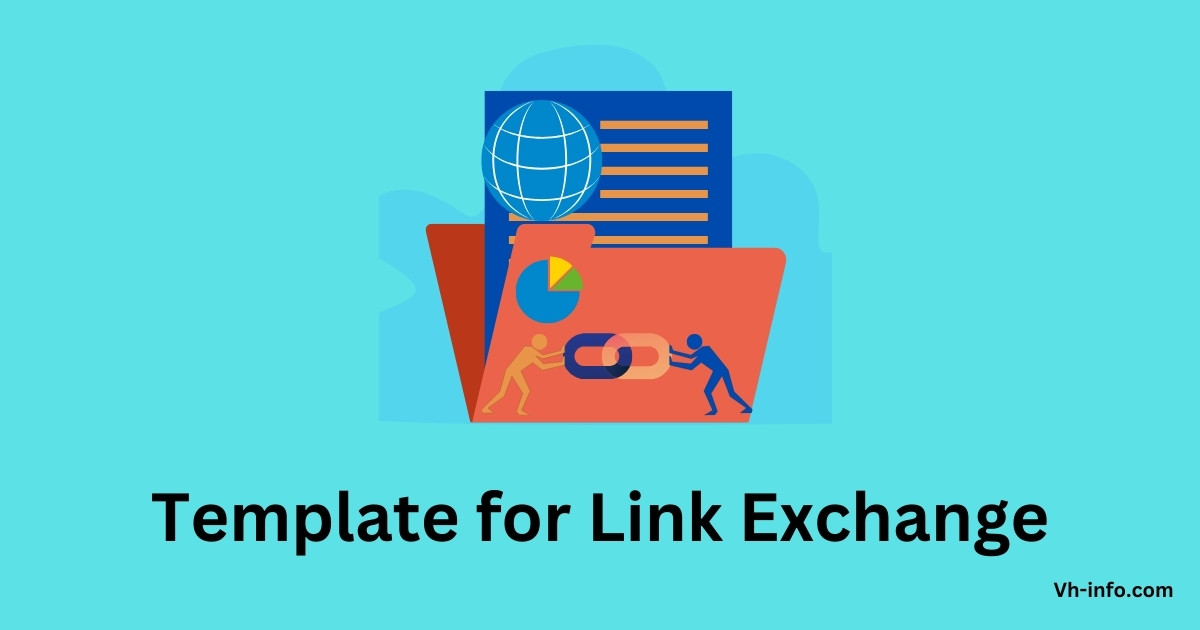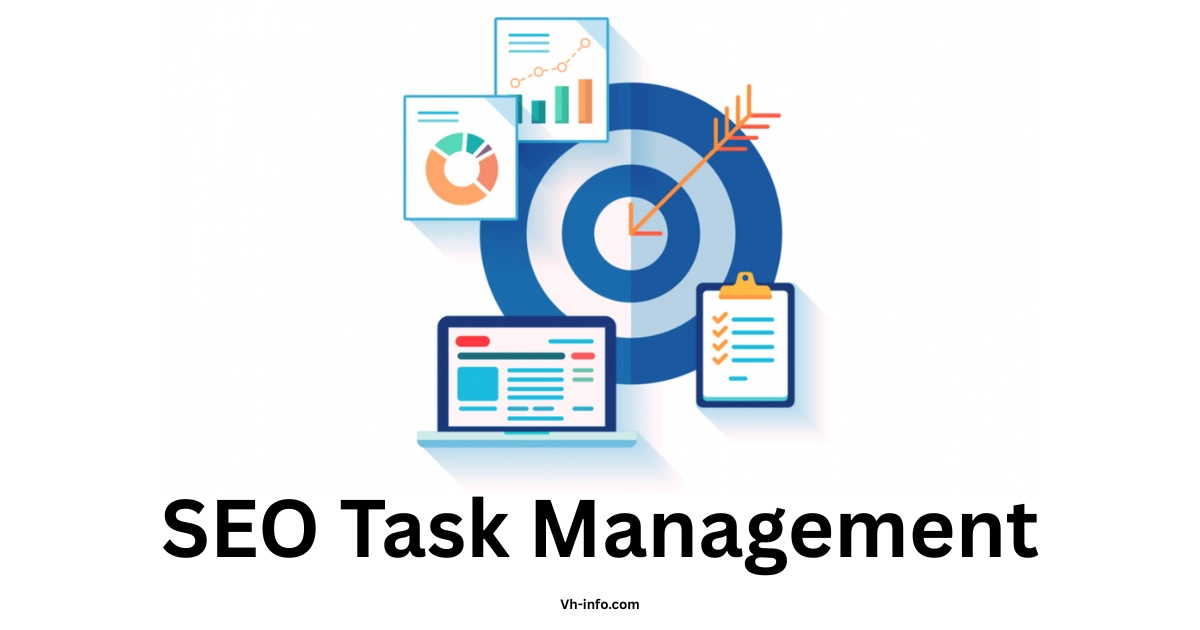In the vast world of digital marketing, link building plays a crucial role in improving search engine rankings and driving traffic to websites.
One effective strategy within the realm of link building is link exchange, which involves two websites mutually agreeing to link to each other through cold email outreach and building your email list.
In this step-by-step guide, we will delve into the process of crafting a link exchange template that will help you establish valuable connections, boost your website’s authority, and enhance your online presence.
Whether you are a beginner or an experienced marketer, this guide will provide you with the necessary information and best practices to implement an effective and valuable addition to your link building outreach emails strategy.
Introduction to Link Exchange

Definition of Link Exchange
A link exchange is when two website owners agree to share links on their websites. The aim is to boost visibility and search engine rankings by getting links from other sites. However, link exchanges are outdated for SEO and can harm a site’s ranking. Search engines might penalize websites that do too many or manipulative link exchanges, leading to lower search results. It’s vital to pick high-quality and related links for link exchanges.
Importance Of Link Exchange For SEO And Website Promotion
Here are the key points on the importance of link exchange for SEO and website promotion:
- Link swaps were once used to get backlinks and boost SEO rankings.
- Google now penalizes excessive link exchanges.
- Using guest posts are outdated and ineffective in SEO.
- Focus on quality content for natural backlinks.
- Search engines value user-friendly sites with ethical strategies.
- Some genuine link swaps may still help but avoid manipulation.
- Build online presence ethically instead of relying solely on link exchanges.
Benefits of Link Exchange
Here are some potential benefits of link exchange:
- Increased website traffic: When you exchange links with other relevant websites, you can drive more targeted traffic to your site from the referring sites.
- Improved search engine rankings: Inbound links from authoritative and relevant websites can help improve your search engine rankings, as search engines consider backlinks as a ranking factor.
- Brand exposure: Link exchanges can help increase your brand’s visibility and reach, especially if you exchange links with popular or high-traffic websites.
- Reciprocal relationships: Link exchanges can foster mutually beneficial relationships with other website owners in your industry or niche, leading to potential collaborations or partnerships.
- Cost-effective marketing: Compared to paid advertising, link exchanges can be a cost-effective way to promote your website and gain exposure, as long as you approach it ethically and strategically.
Finding Suitable Link Exchange Partners
When it comes to finding suitable link exchange partners, it’s essential to be selective and choose websites that are relevant, high-quality, and can provide value to your audience.
Here are some criteria to consider:
Criteria For Selecting Relevant And High-Quality Websites
- Relevance: Look for websites that are within your niche or industry, as these are more likely to have an audience interested in your content and offerings.
- Authority: Prioritize websites with a strong online presence, high domain authority, and a good reputation within your industry.
- Content quality: Evaluate the quality of the website’s content, ensuring it is well-written, informative, and regularly updated.
- User experience: Consider websites with a clean design, easy navigation, and a positive user experience.
- Traffic: While not a definitive factor, websites with higher traffic can potentially provide more exposure for your brand.
Tools And Resources For Finding Potential Partners
- Search engines: Use relevant keywords and phrases related to your niche or industry to search for potential link exchange partners.
- Competitor analysis: Examine the backlink profiles of your competitors using tools like Ahrefs or Semrush to identify websites they have gained links from.
- Online directories: Explore niche-specific directories or forums where website owners within your industry congregate and connect.
- Social media: Leverage social media platforms like Twitter, LinkedIn, or industry-specific groups to identify and connect with potential partners.
- Outreach campaigns: Conduct outreach campaigns to websites you find valuable, proposing a mutually beneficial link exchange opportunity.
Link Exchange Template

When reaching out to potential link exchange partners, it’s helpful to have a standardized template that you can customize for each website. This ensures a professional and consistent approach to your outreach efforts.
Here are 5 Link Exchange Template examples you can use:
Template 1:
Subject Line: Link Exchange Opportunity – [Your Website & [Their Website
Hi [Name,
I recently came across your website [Their Website while researching [Topic/Niche. I really enjoyed the content you’ve published on [Specific Topics. It aligns well with the type of information we share on our website [Your Website.
I’m interested in exploring a link exchange opportunity between our two sites. By linking to each other’s related content, we can provide extra value to our readers while helping improve our search visibility.
Would you be open to exchanging links? If so, I’d be happy to share a few suggested pages from my site that could be a good fit for a link from one of your articles. Please feel free to propose linking opportunities on my site as well.
Looking forward to your thoughts!
Regards,
[Your Name
Template 2:
Subject: Link Partnership Proposal – [Their Website & [Your Website
Hello [Name,
I’m [Your Name from [Your Website. I’ve been following your content on [Their Website for a while now, and I’m really impressed by the quality of information you publish, especially on topics like [Relevant Topic 1 and [Relevant Topic 2.
Our website, [Your Website, covers similar topics and caters to an audience that could greatly benefit from your authoritative content as well. I think a link partnership between our sites could be mutually beneficial.
Would you be interested in exchanging editorial links between relevant articles on our respective websites? This will not only provide extra value to our readers by connecting them to other great resources but could also help boost our search rankings over time.
I’d be happy to provide you with some link suggestions from my end that are contextually relevant to your content. Please feel free to propose link opportunities on my site as well.
Let me know your thoughts! I look forward to exploring this potential link exchange further.
Best regards,
[Your Name
Template 3:
Hi [Name,
I hope you’re doing well! I’m reaching out because I really enjoy the helpful content you publish on [Their Website, especially the articles on [Relevant Topic. The information you share aligns perfectly with the type of content we create for our audience at [Your Website.
I wanted to propose a link exchange partnership. By including contextual links to each other’s relevant articles, we can provide our readers with additional high-quality resources while potentially improving our sites’ search visibility.
Would you be interested in swapping a few links between our websites? I’d be happy to share some specific pages from my end that could be a good fit for you to link to. And please feel free to suggest any relevant pages on my site where a link to your content would add value.
Let me know what you think! I’m excited about the potential of working together in this mutually beneficial way.
Cheers,
[Your Name
Template 4:
Subject Line: Link Partnership Inquiry – [Your Website & [Their Website
Dear [Name,
My name is [Your Name, and I run the website [Your Website that covers topics related to [Topics/Niche. I really enjoy the quality content you publish on [Their Website, and I believe our audiences could greatly benefit from each other’s resources.
I’d like to explore the possibility of establishing a link partnership between our two websites. By exchanging contextual links to relevant, high-quality content, we can provide extra value to our readers while potentially boosting our websites’ search rankings over time.
Would you be open to identifying opportunities for link exchanges between [Your Website and [Their Website? I’m happy to share some specific page suggestions from my end that could be a good fit for your content, and I’d appreciate any relevant link recommendations from your side as well.
Please let me know if you’re interested in discussing this link partnership further. I’m excited about the potential of working together in this mutually beneficial way.
Thank you for your time, and I look forward to hearing from you.
Best regards,
[Your Name
Template 5:
Hi [Name,
I hope this email finds you well. I’m reaching out because I’m a big fan of the content you publish on [Their Website. The information and resources you share, especially on topics like [Relevant Topic 1 and [Relevant Topic 2, are truly valuable.
At [Your Website, we cover similar subjects and aim to provide our audience with high-quality, authoritative information. I believe a link exchange partnership between our two sites could be incredibly beneficial for both our readers and our online visibility.
Would you be interested in exploring opportunities for exchanging contextual links between relevant articles and resources on our respective websites? Not only could this provide our audiences with additional helpful content, but it could also help improve our search rankings over time.
I’d be happy to provide you with some specific page suggestions from my end that could be a good fit for your content. Please feel free to share any relevant pages from your site where links to my resources would add value as well.
Let me know your thoughts! I’m excited about the potential of working together in this mutually beneficial way.
Best regards,
[Your Name
Elements of a Standard Link Exchange Template
A typical link exchange template should include the following elements:
- Subject line: Craft an attention-grabbing subject line that clearly communicates the purpose of your email, such as “Link Exchange Opportunity” or “Collaboration Proposal.”
- Greeting: Start with a friendly greeting, addressing the website owner or webmaster by name if possible.
- Introduction: Briefly introduce yourself and your website, highlighting your relevance to their niche or industry.
- Proposition: Clearly state your proposal for a link exchange, emphasizing the mutual benefits for both websites.
- Website details: Provide relevant details about your website, such as its domain authority, traffic statistics, and a brief description of the content or services offered.
- Reciprocation: Outline what you are willing to offer in return, such as placing a link to their website on a relevant page or section of your site.
- Call-to-action: Include a clear call-to-action, inviting the recipient to respond and discuss the link exchange opportunity further.
- Closing: End the email with a polite closing statement and your contact information for easy follow-up.
Customizing The Template For Your Website
While a standardized template serves as a foundation, it’s essential to customize each outreach email to ensure it resonates with the specific website owner you’re contacting.
Here are some tips for customization:
- Research the website: Spend time familiarizing yourself with the website’s content, audience, and goals to tailor your proposal accordingly.
- Personalize the message: Address the website owner by name, mention specific pages or sections of their website that would be relevant for the link exchange, and highlight how your websites complement each other.
- Highlight unique value: Emphasize the unique value your website can offer their audience, such as exclusive content, tools, or resources that would be of interest.
- Establish common ground: If possible, find common interests, industry connections, or shared values that can help build rapport and increase the chances of a successful partnership.
Best Practices For Link Exchange

Engaging in link exchanges can be beneficial for website promotion and SEO if done ethically and strategically.
Here are some best practices to follow:
Guidelines For Ethical And Effective Link Exchange
- Relevance: Prioritize exchanging links with websites that are highly relevant to your niche or industry. This ensures that the links are valuable to your audience and search engines.
- Quality over quantity: Focus on acquiring a few high-quality links from authoritative and reputable websites rather than accumulating numerous low-quality links.
- Reciprocity: Offer to place a link to the partner website on a relevant and contextual page of your site in exchange for a similar placement on their site.
- Content integration: Instead of isolated link exchanges, consider integrating links within high-quality content, such as guest posts, interviews, or resource lists.
- Transparency: Be transparent about your link exchange arrangements and avoid any deceptive or manipulative practices that could be considered spam by search engines.
- Moderation: Engage in link exchanges sparingly and avoid excessive link exchanges that could be seen as an attempt to manipulate search engine rankings.
- Monitoring: Regularly monitor the websites you have exchanged links with to ensure they maintain their relevance, quality, and reputation over time.
Avoiding Link Schemes And Spam Tactics
While link exchanges can be a part of your overall strategy, it’s crucial to avoid practices that could be considered link schemes or spam by search engines.
Here are some tactics to avoid:
- Purchasing links: Buying or selling links is considered a violation of search engine guidelines and can result in penalties.
- Link farms or link networks: Avoid participating in link farms or private link networks, as these are often seen as manipulative and can harm your search engine rankings.
- Excessive or irrelevant links: Avoid exchanging links with websites that are completely unrelated to your niche or industry, as these links offer little value to your audience or search engines.
- Cloaking or hiding links: Never attempt to hide or cloak links from search engines, as this is considered a deceptive practice and can lead to severe penalties.
- Automated link exchanges: Steer clear of automated link exchange programs or software, as these are often associated with low-quality or spammy links.
Tracking and Monitoring Link Exchange
Monitoring and tracking your link exchange efforts is crucial to ensure that you’re receiving the expected value and to identify any potential issues or opportunities for improvement.
Here’s how you can approach this process:
Tools For Monitoring Backlinks And Partner Websites
- Backlink Monitoring Tools: Services like Ahrefs, Semrush, or Moz provide comprehensive backlink analysis, allowing you to track the inbound links pointing to your website from your link exchange partners.
- Google Search Console: Google’s Search Console tool offers insights into the backlinks pointing to your website, as well as any potential issues or penalties related to your link profile.
- Web Crawler Tools: Tools like Screaming Frog or DeepCrawl can crawl your website and partner websites, identifying broken links, redirect chains, and other technical issues that may impact your link exchange efforts.
- Website Monitoring Services: Services like Uptime Robot or Pingdom can monitor your partner websites for downtime, performance issues, or significant changes that could affect the value of their inbound links.
Identifying And Removing Broken Or Low-Quality Links
- Regular Audits: Conduct regular backlink audits using the tools mentioned above to identify any broken links, links from low-quality or irrelevant websites, or links that may be considered manipulative by search engines.
- Disavow Links: If you discover spammy or low-quality links pointing to your website, you can use Google’s Disavow Tool to request that these links be ignored by search engines when evaluating your website’s ranking.
- Outreach and Link Removal: For links from reputable websites that have become broken or irrelevant, reach out to the website owners and politely request that they update or remove the links pointing to your site.
- Monitor Partner Websites: Keep an eye on the quality and relevance of your link exchange partners’ websites. If a partner’s website starts to exhibit spammy behavior or drops significantly in quality, consider removing or updating the link from your site.
Alternative Link-Building Strategies
While link exchanges can be a part of your overall strategy, it’s essential to explore other ethical and effective link-building tactics to diversify your efforts and build a strong, natural backlink profile.
Here are some alternative link-building strategies to consider:
Guest Posting

Guest posting involves creating high-quality content for other authoritative websites in your industry or niche. By providing valuable content, you can earn a contextual link back to your website, increasing your brand’s visibility and exposure.
- Identify relevant and reputable websites that accept guest contributions.
- Pitch compelling topic ideas that align with the website’s audience and content goals.
- Create informative, well-researched, and engaging content that provides value to the readers.
- Include a natural, contextual link back to your website within the content.
- Promote your guest post through your own channels to drive more traffic and visibility.
Resource Link Building

Resource link building involves creating valuable resources, tools, or guides that other websites would find helpful and want to link to. These resources can take various forms, such as industry studies, expert interviews, comprehensive guides, or interactive tools.
- Identify gaps or pain points in your industry that could benefit from a valuable resource.
- Create a high-quality resource that provides unique insights, data, or solutions.
- Promote your resource through outreach campaigns, social media, and industry channels.
- Monitor and track websites that link to your resource, and cultivate relationships with them.
- Continuously update and enhance your resource to maintain its relevance and value.
Social Media Outreach

Social media platforms can be powerful tools for building relationships, sharing valuable content, and earning natural backlinks from influential sources.
- Identify key influencers, thought leaders, and industry publications in your niche.
- Engage with their content by leaving insightful comments, sharing their posts, and interacting in a genuine way.
- Share your own valuable content and resources that could be of interest to their audience.
- Participate in relevant conversations and discussions, providing expertise and insights.
- Cultivate relationships over time, and explore opportunities for guest posting or resource collaborations.
Just by diversifying your link-building efforts and focusing on creating high-quality, valuable content and resources, you can earn natural, authoritative backlinks that search engines value.
These alternative strategies not only improve your website’s visibility and search engine rankings but also enhance your brand’s credibility and industry presence.
FAQ’s:
How To Ask For Link Exchange?
When asking for a link exchange, it’s important to approach it politely and professionally.
Here’s how you can go about it:
Identify relevant websites in your niche that align with your content and target audience.
Reach out to the website owners or administrators through email, introducing yourself and your website, and propose a mutually beneficial link exchange arrangement as the first step in your outreach process.
Highlight how your websites complement each other and how the exchange can be a great fit for both parties’ audiences, specifically mentioning a specific aspect that your content covers that aligns with their audience’s interests, such as a specific article or topic they have covered.
Be open to discussion and negotiation to find a fair and ethical way to proceed with link opportunities.
Are Link Exchanges Good For SEO?
Link exchanges are generally not considered a good SEO practice anymore. Search engines have become more sophisticated and can identify manipulative link building tactics. Instead, focus on earning high-quality, relevant backlinks through creating valuable content, guest posting, and building genuine relationships with other websites in your niche.
What Should be Included in a Template for Link Exchange?
When crafting a template for proposing a link exchange, it’s important to include the following key elements:
- A friendly greeting and introduction, addressing the recipient by name if possible.
- A clear and concise proposition outlining the proposed link exchange arrangement.
- Details about your website, such as its domain authority, traffic statistics, and a brief description of the content or services offered.
- An explanation of the mutual benefits and value proposition for both parties.
- A specific call-to-action, inviting the recipient to respond and discuss the opportunity further.
- Your contact information for easy follow-up.
- A polite closing statement.
It’s also crucial to personalize each outreach email by researching the recipient’s website, highlighting relevant pages or sections for the link placement, and emphasizing how your websites complement each other. This level of customization increases the chances of establishing a successful and valuable partnership.
How Can a Well-Designed Template For Link Exchange Benefit Both Parties?
A well-designed template for link exchange can benefit both parties by clearly outlining the proposed arrangement, highlighting the mutual value and relevance, and establishing a professional tone for the collaboration.
This streamlines the negotiation process and increases the chances of a successful partnership that drives quality traffic and improves search engine visibility for both websites.
By utilizing a personalized outreach template for link exchange, both parties can save time and effort in the negotiation process and focus on implementing effective strategies for building links and creating valuable content on a specific topic for a strong and mutually beneficial partnership.
Additionally, using the recipient’s name in the template adds a personal touch and shows that the sender has taken the time to research and understand the recipient’s work, making the outreach more effective.
Are There any Common Mistakes to Avoid When Creating a Template For Link Exchange?
Some common mistakes to avoid when creating a link exchange template include using a generic, impersonal tone, failing to highlight the mutual benefits for both parties, and appearing too sales-y or spammy. It’s important to strike a balance between professionalism and personalization to increase the chances of a successful partnership.
How Do You Reach Out To Potential Partners Using a Link Exchange Template?
To reach out to potential partners for a link exchange, you can create a simple email template highlighting the mutual benefits and requesting a link swap. Personalize the emails, keep them concise, and follow up if needed.
Can a Template for Link Exchange Help Improve Search Engine Rankings?
Yes, using a link exchange template can help improve your search engine rankings. It allows you to get high-quality backlinks from relevant websites, which is a key factor in boosting your site’s authority and visibility on search engines.
What Elements Make a Template For Link Exchange Effective and Professional?
An effective and professional link exchange template should have a polite and personalized tone, clearly explain the mutual benefits, and include all the necessary details like the website URLs and anchor text suggestions. Keeping it concise and well-structured makes it more appealing.
Is It Important To Personalize a Template For Link Exchange, And If So, How Can It Be Done Efficiently?
Yes, personalizing a link exchange template is important to make it more effective. You can do this efficiently by researching the website and including specific details like mentioning their content or services that align with your website. A personal touch goes a long way.
How Can You Measure The Success Of Your Link Exchange Efforts Using a Template?
To measure the success of your link exchange efforts using a template, you can track the number of backlinks acquired, monitor your website’s search engine rankings for relevant keywords, and analyze the referral traffic coming from the linked websites.
What Are Some Effective Methods For Link Building?
Some effective methods for link building include creating high-quality content that naturally attracts links, guest posting on relevant websites, developing useful tools or resources that others want to link to, and building relationships with influencers and other site owners to explore collaboration opportunities. The key is to focus on providing value and taking an ethical, audience-centric approach rather than manipulative tactics.
How Does Google Treat Link Exchange?
Google generally frowns upon excessive or manipulative link exchanges. While a few genuine, relevant link exchanges may not cause issues, Google’s algorithms are designed to detect and devalue links that appear to be part of a scheme to artificially inflate a website’s search rankings. As such, it’s advisable to focus on earning high-quality backlinks through ethical means like creating valuable content.
Can Anyone Share Templates Of Emails For Guest Posting?
Here’s an example template for a guest posting email that you can customize:
“Hi [Editor’s Name,
I’m a writer focused on [your niche and came across your website while researching potential guest posting opportunities. I really enjoyed your recent article on [relevant topic and have some unique insights to share on a related subject, [proposed topic idea. If you’re open to guest contributions, I’d be happy to put together a high-quality, in-depth article for your readers. Let me know if you’d like to discuss further!
Best regards,
[Your Name”
The key is to keep it concise yet personalized, highlighting your expertise, the proposed topic’s value, and an open invitation to discuss further. Feel free to modify the template to suit your specific situation and writing style.
How Does a SaaS Startup Go About Getting Backlinks?
As a SaaS startup, some effective ways to get backlinks are:
- Creating high-quality content (guides, tutorials, case studies) that provides value to your target audience. This can naturally attract links from other relevant sites.
- Guest posting on authoritative blogs/publications in your industry to get a backlink in your author bio.
- Building relationships with influencers and other companies in your space to explore opportunities for cross-promotion or content collaborations that include backlinks.
What Methods Do You Really Use In Practice For Link Building?
In practice, I focus my link building efforts on a few key methods:
- Content Marketing – Creating high-quality, in-depth content pieces like ultimate guides, original research reports, expert roundups etc. This valuable content tends to naturally attract links over time.
- Guest Posting – I identify relevant, authoritative sites in my niche and pitch guest post ideas. This allows me to contribute content while earning a contextual backlink.
- Source/Mention Link Building – I monitor for mentions of my brand/company name online and politely inquire about getting a link added.
- Relationship Building – I aim to build genuine connections with influencers, bloggers and other site owners in my space through commenting, interacting on social, and looking for content collaboration opportunities.
- Broken Link Building – I use tools to find relevant broken links on high-quality pages and pitch my own resource as a replacement.
The common thread is providing value through quality content and taking a careful, ethical approach focused on developing relationships rather than link exchanges or anything manipulative. It’s an ongoing process of consistently creating and promoting content tailored to my target audience.
Conclusion
In conclusion, understanding the significance of link exchange and implementing it ethically can enhance your website’s SEO and online visibility. By following best practices, selecting relevant partners, and monitoring backlinks, you can build a strong network of quality links.
Remember to prioritize ethical approaches, avoid spam tactics, and diversify your link-building strategies with guest posting and social media outreach.
Consistent effort and strategic link exchanges can contribute positively to your site’s search engine rankings and overall online presence. Stay focused on creating valuable connections and valuable content for mutual benefit.



